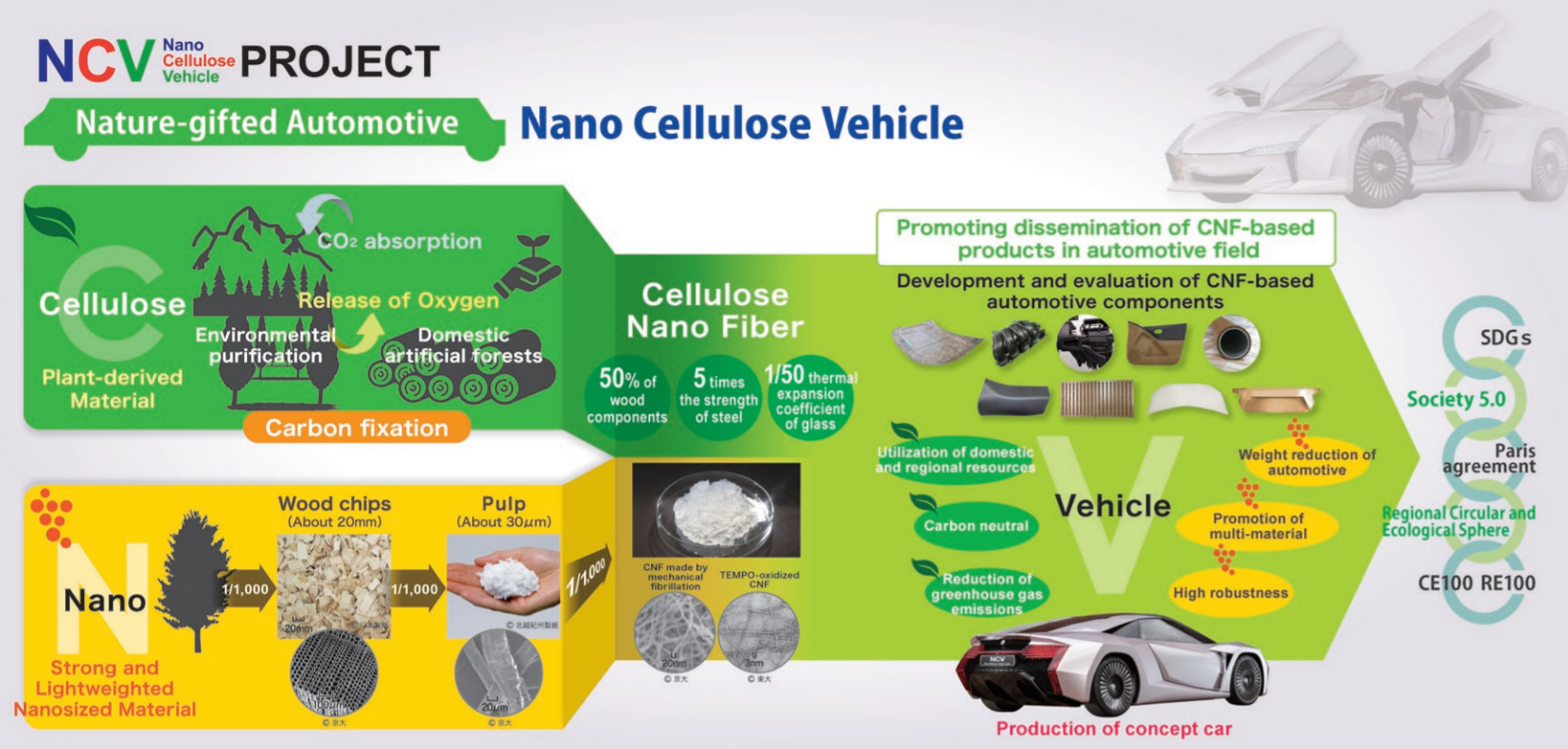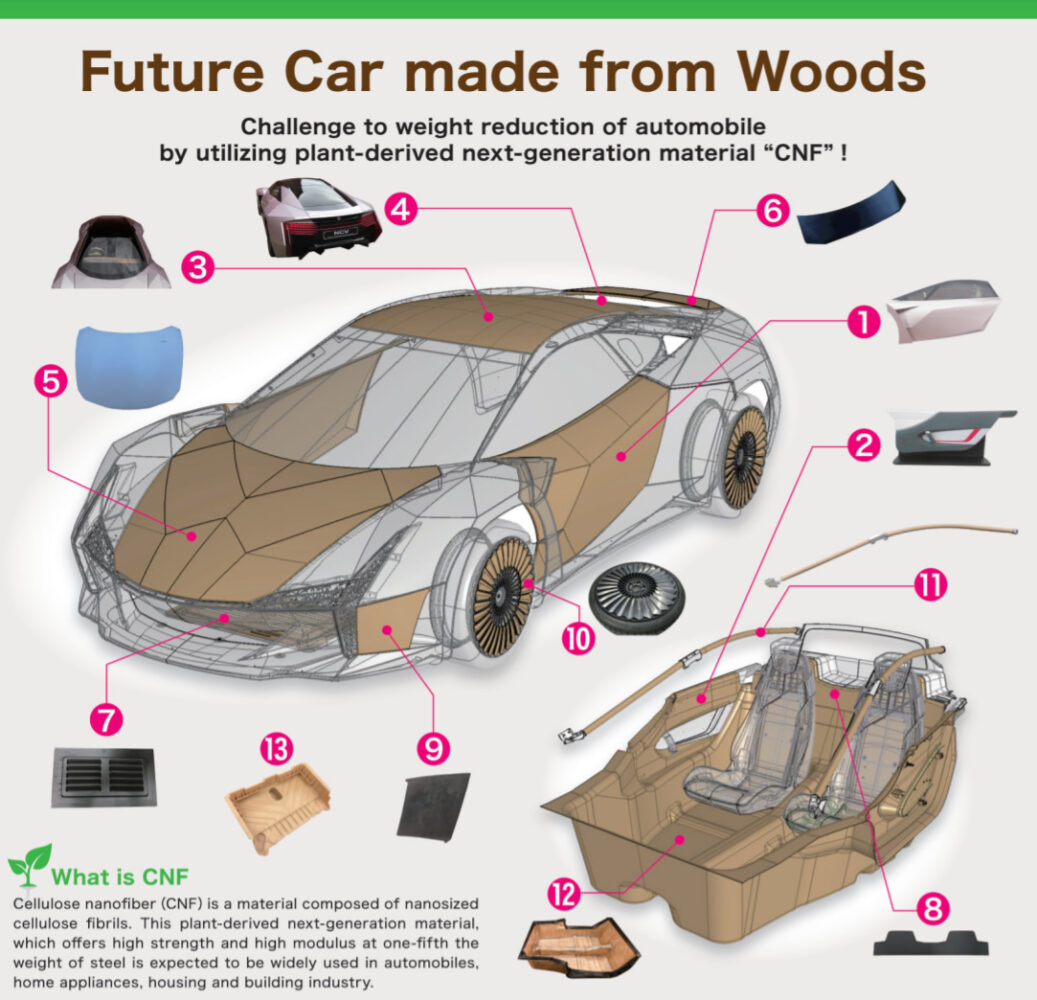Eco-friendly car from wood, Japan’s Nano Cellulose Vehicle
What will our planet and society be like in 2030?
Innovation is the key to overcoming issues threatening the Earth’s sustainability, like population, food and energy.
Japan’s cutting-edge science and skilled technology are now uniting to help create a sustainable society.
What you are looking at here is a challenge to create an eco-friendly vehicle from wood called Nano Cellulose Vehicle (NCV).
About 70% of Japan’s land consists of forests. Known as the world’s oldest wooden building, the Hōryū-Ji Temple has a history of 1,300 years.
For the Japanese, making things from wood is the base of their industry.

Image Source: Ministry of the Environment 
Image Source: COOL CHOICE secretariat & Ministry of the Environment
Around 1.3 billion cars exist in the world today. Greenhouse gases are a growing concern, not only from exhaust emissions but also from the manufacture and disposal of the vehicles themselves.
The NCV project, led by the Ministry of the Environment Government of Japan, involves 22 universities, research institutes and companies such as Kyoto University. Together they are developing cellulose nanofibers (CNFs), a visionary next-generation material made from plant fibres like wood.

CNF comes from the skeletal components of plant cell walls. It becomes a nano-sized fibrous material extracted from wood through a chemical and mechanical process.
Lightweight and sturdy (1/5th of steel weight, 5 times the strength). It has less stress on the environment in many ways, including its anti-expansion properties, making it suitable for cars, household appliances, housing and building materials.

The bonnet is made of 100% CNF.
In the future, Japan aims to provide the ultimate zero-CO2 car, but the first goal is to reduce the car’s weight by around 10% using CNF.
If a 10% weight reduction is possible, each car could reduce CO2 emissions by 2,000kg over its lifecycle compared to the current standard vehicle. This is roughly the same amount of CO2 emitted by a Japanese household.
Making cars more green is something we will all need in the coming future.
We have a network of Japanese companies keen to expand into the Halal market in Malaysia & Indonesia.
If you are interested in connecting with sustainable technology companies in Japan, simply JOIN the network from below. We will match the right one for you!




